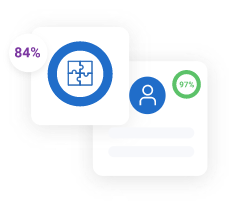- Application
- Information
Free review on your application |
1:1 counselling by certified consultants |
Higher acceptance rate on your top choices |
Program Description
This course equips students with the skills, knowledge and personal development to enable you to meet diverse professional challenges of nursing. It aims develop you into an adaptable, reflective and compassionate practitioner through carefully devised teaching and learning methods.
The programme is complimented with significant insights into mental health, learning disability, and children and young people’s nursing.
This three-year course has been designed to meet the requirements of the Nursing and Midwifery Council. We aim to give you as much real-world experience possible, by incorporating a 50% practical and 50% theory structure. This means you have no traditional end of year exams, you receive invaluable mentoring support and you get hands-on experience of working in the field.
Entry Requirements

Are you eligible to apply?
Program Benefits
- Upon completion of this course, you will receive a qualification awarded by Coventry University.
- Fully accredited by the Nursing and Midwifery Council (NMC) providing eligibility for registration to practice on successful completion.
Course Information
In modern health and social care settings nursing students are increasingly required to work towards becoming autonomous practitioners, taking a leadership role in decisions regarding patient care within multi-professional settings. They routinely have the most frequent and intense contact with patients and must be competent in recognising changes in patient condition so that appropriate action can be taken.
This curriculum has been developed as a spiral curriculum with assessment at its core. Placing equal value on practice and theory, undertaking 800 hours of each per year, students study a wide range of subjects, including anatomy and physiology, pharmacology, psychology, sociology and research methods. You’ll become immersed in learning about the needs of populations, individuals, related health and nursing services with an emphasis on using research to enhance and improve services.
The collaborative curriculum, which you’ll study alongside students from other health-related courses, has been developed in response to the need to produce professionals who are effective communicators, caring and compassionate, with good relationship building skills.
It recognises the importance of inter-professional working within the health and social care workforce and comprises five core modules in the areas of: the foundations of communication and professionalism; the social determinants of health and wellbeing; evidence informed practice and decision making; working together to lead service improvement; and enhancing practice through evaluation and research.
The degree culminates with a literature review related to one aspect of nursing practice, equivalent to the standard dissertation, for which you will be required to write a 5,000 report. Past students have covered topics as diverse as end of life care, maggots in wound care, the role of the advanced nurse practitioner and CPR.
Overview
The first year prepares you for further study and facilitates the understanding of the core principles which underpin adult nursing. From the offset, you are introduced to the impact of social determinants, cultures and environmental factors on the nursing industry. This introductory year aims to provide a comprehensive understanding of the key issues and problems in the contemporary development of adult nursing.
You’ll explore biological and pharmacology principles, the industry context and nursing basics providing a solid foundation for progression into years two and three.
As the course progresses, students build on the knowledge gained in year one to cement a solid foundation of core principles. At this level, you’re working on more complex issues and advancing your capability of autonomous working. Enhancing your fundamental understanding of nursing theory, you’ll put your knowledge into practice in a number of interactive modules.
You will explore different pathways of care, therapeutic approaches, and evaluate decision making established on evidence collation.
This year you are working at a professional level, taking on the perspective of an accountable practitioner and clarifying your nursing skills. You’ll be building on the culmination of knowledge gained in previous years and focusing on transferable skills; project management, time management and prioritisation. Centring on contemporary topics, you’ll cover immediate issues, care packages, lead service, and management and leadership.
You’ll be confident in your own development planning and demonstrate commitment to your continuous improvement as a skilful, accountable practitioner of adult nursing.
Practice Modules
Within each year you will also undertake two practice modules, where you will be allocated to a clinical area to work under the supervision and support of a mentor. Undertaking these clinical placements will enable you to meet the practice component of the course and relate theory to practice.
Curriculum
Careers
There are many options for graduates, such as:
- qualified nurses in the NHS
- acute hospitals
- military nursing
- in the private and independent healthcare sector
- in private hospitals, nursing or care homes
As your career progresses a number of options may open to you for example as a/an:
- lecturer
- specialist practitioner
- advanced nurse practitioner
- consultant nurse
- manager
Need help applying to this program?
Similar programs |